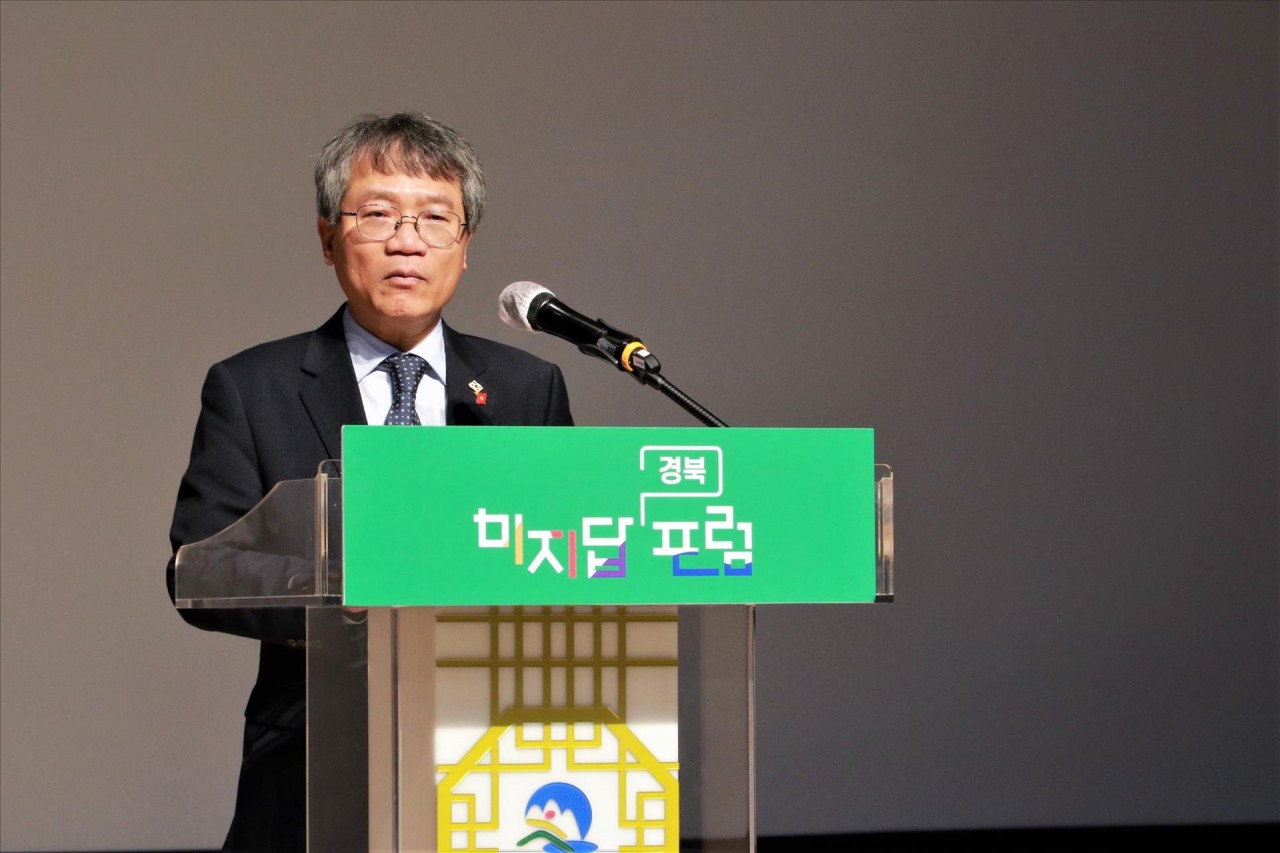A forum on the development of the “K-Vietnam Valley” project was organized in Bonghwa county, North Gyeongsang province, the Republic of Korea (RoK) on September 21-22 to promote the construction of a Vietnamese village, VNA reported.
The project is a strategic vision to enhance culture, history, and tourism-based exchanges between Vietnam and the RoK in the next 30 years.

|
| Vietnamese Ambassador Nguyen Vu Tung speaks at the event. Photo: VNA |
Speaking at the event, Vietnamese Ambassador Nguyen Vu Tung affirmed the embassy’s support for the Vietnamese village project in Bonghwa, while highlighting its significance in carrying out the county’s socioeconomic development plans, developing the Vietnamese community in the host nation as well as contributing to the Vietnam – RoK comprehensive strategic partnership through people-to-people exchange.
Deputy Governor of North Gyeongsang Province Kim Hak-hong said that the village will become a tourist destination and cultural exchange site that makes contributions to sound bilateral relations.
He said leaders of North Gyeongsang province will exert efforts to develop the village into a historical space and expand collaboration between Vietnam and the RoK.
Meanwhile, the Chairman of Bonghwa County Park Hyeon-guk said that the village will help address the serious population decline in the county while opening up a new space for the bilateral exchange over the next 30 years.
The USD-150-million village project, now named “K-Vietnam Valley”, was developed based on the historical exchange between the Ly dynasty and the RoK years ago. It is expected to breathe fresh air into Bonghwa’s development by creating new jobs in rural areas and promoting tourism, among others.
The village will be developed on an area of 38,350sq.m, including a Vietnamese culture and history center, a multicultural international school, and a performance room.

|
| The Trung Hieu Duong relic of the Ly Hoa Son family in Bonghwa, North Kyungsang province. Photo: VNA |
The Korean province is home to a hall of the Ly Hoa Son (Lee Hwasan) clan, who are descendants of Ly Long Tuong, a prince of the Ly dynasty that ruled Vietnam between the 11th and 13th centuries.
After the Ly reign of the country fell into the hands of the Tran dynasty in 1225, Tuong fled to Goryeo, now the Korean Peninsular, where he and his followers received a warm welcome from local King Kojong.
Goryeo was by then being threatened by the Mongol Empire. The Vietnamese prince allied with King Kojong in fighting the Mongolian aggression.
The defeat of the Mongolians earned him the king’s trust and respect. Tuong lived in the RoK until the day he died and became the founder of the Ly Hoa Son clan there.
A musical named “Ly Long Tuong” will be staged in Bonghwa village on September 22 as part of the local efforts to nudge the project closer to the public.
Since 2004, as many as 140,000 Vietnamese people have traveled to the RoK to work under the Employment Permit System (EPS) program and made contributions to boost the two countries’ relations.








